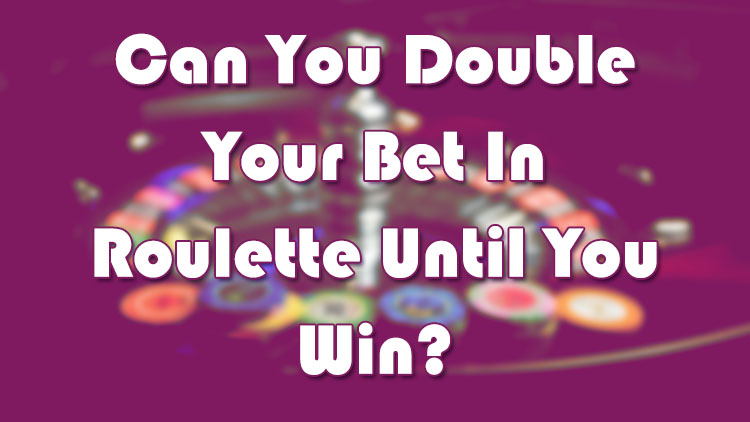
The long-standing popularity of roulette in the casino world is undeniable, and this has led to the creation of a range of betting strategies. Among these, the strategy of incrementally doubling your bets after each loss stands out among the crowd for its straightforward premise. This technique, known as the Martingale system, sparks much curiosity. Thus, we explore the viability of consistently doubling your bets in roulette until securing a win.
What Is The Martingale Strategy?
At its core, the Martingale system is a betting strategy often applied in chance-based casino games, such as roulette, and is categorised under 'negative progression' strategies. Its concept is straightforward: for each loss, the player doubles their stake for the next bet.
The underlying theory suggests that if a win occurs, the payout recuperates the prior losses and may yield a slight profit.
Imagine initiating with a £1 bet. A loss would mean your next wager is £2. Another loss? That wager becomes £4. The process repeats until a win is achieved, at which point the bet resets to the original amount.
Does The Martingale Strategy Work On Roulette?
The Martingale system's effectiveness in roulette is a matter of debate. It's crucial to acknowledge roulette's nature as a chance-based game. No strategy can change the game's inherent odds.
A sequence of losses can lead to exponentially growing bets, which can deplete a player's funds swiftly. Furthermore, casinos have betting limits that can halt the Martingale strategy in its tracks. Reaching a table's maximum bet restricts further doubling, meaning the system can no longer work as intended.
Due to its reliance on landing a win eventually, this system requires players to place bets on the even-money outside bets in roulette, which has odds of just under 50%.
Can You Double Your Bet Until You Win?
While the Martingale strategy can be theoretically effective, real-world constraints such as casino table limits and the player's budget come into play that prevent it from becoming reliable.
Casinos implement betting caps to safeguard both the establishment and the player from extreme losses. Hitting this cap prevents further bet doubling, disrupting the Martingale strategy. Similarly, a player's budget is a limiting factor. Encountering a losing streak can escalate the bet size quickly, and the player's budget may not be able to keep up.
Martingale Strategy FAQs
Is The Martingale Strategy Profitable?
Despite appearing mathematically plausible, the strategy is hampered by roulette's house edge and bet limits. With the probability of winning just shy of 50%, losses are marginally more probable, meaning this strategy is unable to guarantee profits.
Is The Martingale Strategy Legal?
This strategy is legal and accepted in both physical and digital casinos. It's a betting management tactic that doesn't influence game odds, thereby adhering to the rules.
What Is It Called When You Keep Doubling Your Bet In Roulette?
This betting strategy is referred to as the Martingale strategy.
Why Is It Called The Martingale Strategy?
The Martingale strategy is named after a casino owner named John H Martindale, who apparently encouraged players to double their bets after a loss so that if they landed a win, they could recuperate some of their losses.
Do Casinos Kick You Out For Martingale?
Casinos generally do not expel players for employing the Martingale system. They have countermeasures like betting limits in place to help combat such strategies, and they advocate for responsible gambling.
Conclusion
In summary, while the Martingale strategy is permissible and can be employed in most casinos, it doesn't guarantee a win or profits. It's vital for players to engage with this strategy knowing its limitations and risks.
Gambling should be about the enjoyment of the game rather than the pursuit of profit. Each roulette spin is independent, with outcomes that cannot be predicted. Please gamble responsibly.
